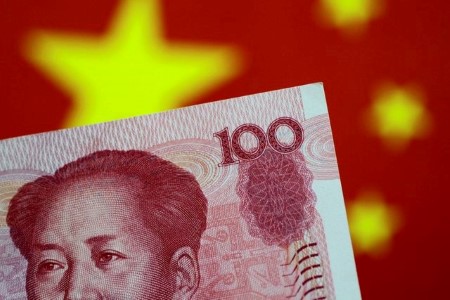




January Economic Update: Growth slows, prices rise
 DOWNLOAD
DOWNLOAD

Inflation Update: Up, up, and away?
 DOWNLOAD
DOWNLOAD

Quarterly Economic Growth Release: Growth takes on a slower pace
 DOWNLOAD
DOWNLOAD


China stocks edge up on Beijing’s plan for insurers to buy mainland shares

HONG KONG – Chinese stocks ended slightly higher on Thursday, supported by the financial sector, while Hong Kong shares closed down, as investors digested Beijing’s latest plans to encourage insurance companies to purchase shares listed on the mainland.
The blue-chip CSI300 index was up 0.2% and the Shanghai Composite Index climbed 0.5% at the close, giving up most of its early gains.
Insurance firms, banks, and the broader financial sector outperformed, rising 3.5%, 2.3% and 1.9%, respectively.
China announced further measures on Wednesday to bolster its stock market.
Under the plan jointly released by six financial regulators including the securities regulator, big state-owned insurance companies will be directed to raise the size and proportion of their investments in Chinese A-shares traded on the mainland and equity funds.
Wu Qing, head of the China Securities Regulatory Commission (CSRC), said on Thursday the plan will bring in hundreds of billions of yuan of new capital every year from state-owned insurers.
It also involves guiding mutual fund managers to increase equity funds under their management.
The measures, which follow US President Donald Trump’s threat to impose a 10% punitive duty on Chinese imports, temporarily lifted market sentiment.
But persistent concerns over US tariff threats and the outlook for domestic economic growth later offset some of the optimism.
Hong Kong’s Hang Seng Index and the Hang Seng China Enterprises Index retreated 0.4% and 0.2%, respectively.
“The implication (for the market) could be short-lived because the structural problem is still there. Most of the investors are still quite cautious at this point,” said Gary Ng, senior economist at Natixis.
Investors are unlikely to relinquish fully their preference for safe-haven assets, such as government bonds, Ng said.
Analysts also said the measures would probably only benefit certain groups of stocks.
“From an equity perspective, funds could end up increasing positions towards less volatile, larger domestic companies,” said Kai Wang, Asia equity market strategist at Morningstar, referring to high dividend stocks or large-cap companies such as Moutai.
Chinese stocks began 2025 with deep losses as investors fretted possible US tariffs would add to the pressure on a sluggish economy.
(Reporting by Summer Zhen; Editing by Jacqueline Wong, Sherry Jacob-Phillips and Barbara Lewis)
This article originally appeared on reuters.com





 By Reuters
By Reuters